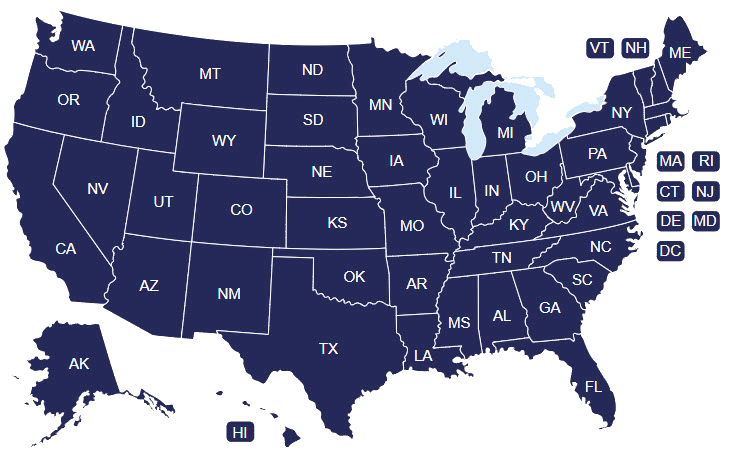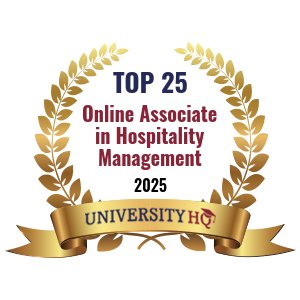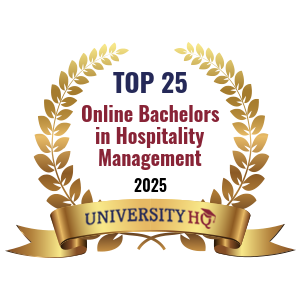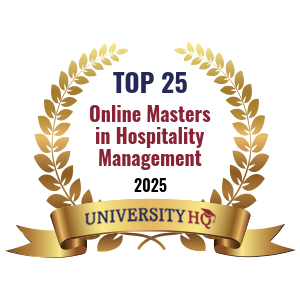Exploring Hospitality Management
Delve into the intricate world of hospitality management as it plays a pivotal role in shaping memorable experiences in sectors like tourism, lodging, and event planning. From historical developments to current trends, you'll gain insights into this vibrant industry.
Evolution of Hospitality
The roots of hospitality trace back to ancient civilizations where inns catered to travelers. Over time, it evolved alongside societal and economic changes.
The industrial revolution marked a surge in hotel establishments, aligning with growing travel and tourism demands.
In modern times, technology revolutionized the industry, leading to innovative changes like online booking systems and personalized guest experiences. Hospitality management has transformed from simple accommodations to complex systems, providing comprehensive experiences across various touchpoints in the hospitality sector.
Key Sectors in Hospitality Industry
Hospitality encompasses diverse sectors, each serving a unique purpose. Lodging focuses on providing accommodations ranging from budget-friendly hotels to luxury resorts and niche stays.
Event planning plays a crucial role, delivering seamless experiences for conferences, weddings, and corporate events.
Additionally, the tourism sector involves orchestrating travel experiences that combine culture, adventure, and leisure.
These sectors intertwine to form a robust network within the hospitality industry, offering vast career opportunities and demanding expertise in customer service and operations management. Through strategic planning and service excellence, these sectors continue to thrive and adapt in today's dynamic market.
Hospitality Management Educational Pathways
A robust educational background in hospitality management opens doors to a variety of careers in this dynamic industry. You'll find a range of degree options, essential courses, and specializations designed to build your skills and education for success. Choosing to study hospitality management opens the door to a dynamic industry that spans hotels, restaurants, lodging, and travel and tourism. This field combines elements of business management with specialized skills tailored to create exceptional guest experiences.
Degrees and Certifications
Pursuing a degree in hospitality management provides a foundational understanding of the industry. You can choose from an associate or bachelor’s degree, with many professionals obtaining a bachelor's in hospitality management to enhance their career prospects. Some also pursue a master’s degree for deeper expertise and leadership roles. There are colleges available that offer accelerated hospitality programs enabling you to finish your degree faster. Certifications can further bolster your qualifications and are often available through professional associations.
Associate Degree in Hospitality Management
An associate’s in hospitality management typically serves as a starting point for those entering the field. Programs usually last about two years and cover fundamental topics such as customer service, event planning, and basic management principles.
Online options are especially appealing to those needing to balance work, family, or other commitments. While less comprehensive than a bachelor's degree, it provides essential skills and knowledge, enabling you to qualify for entry-level positions. Schools offering these programs focus on practical learning, often including internships or real-world projects.
Bachelor's Degree in Hospitality Management
A bachelor’s degree in hospitality management offers a more extensive education, usually requiring four years to complete. Courses often include advanced subjects like hospitality leadership, finance, marketing, and strategic management.
This degree opens opportunities for higher-level positions in hotels, restaurants, and tourism management. Many online programs offer flexibility while maintaining rigorous academic standards. Engaging with comprehensive coursework prepares you for diverse roles and equips you with skills to manage complex hospitality operations effectively. By completing a bachelor's program, you position yourself favorably in the job market with potential for mid-level to senior roles. View our most affordable hospitality management school rankings.
Master's Degree in Hospitality Management
For those aspiring to leadership or specialized roles, a master’s degree in hospitality management can be invaluable. Typically, these programs offer courses in advanced management strategies, leadership development, and innovative practices in hospitality.
An online MBA degree in hospitality management caters to professionals seeking career advancement while working. These programs are structured to enhance your leadership abilities and strategic thinking skills. Some cater specifically to non-traditional students, like working professionals, by offering flexible learning options.
Important Coursework
Coursework in hospitality management covers key areas that are crucial for your career. Courses often include hotel and restaurant management, tourism operations, and event planning.
Understanding finance and accounting is vital, as is learning about marketing within the hospitality sector. Emphasizing problem-solving through cost control techniques can be particularly beneficial, as highlighted in courses such as hospitality operation management.
Specializations
Specializations allow you to tailor your education to match your career goals in hospitality. Common paths include lodging management, food and beverage management, and event planning. Each specialization focuses on distinct elements, such as customer service, operations, and leadership skills. These concentrations prepare you for specific roles within the industry, enabling you to address the unique challenges of your chosen field.
Hospitality Management Career Opportunities for Graduates
In the hospitality sector, there are diverse career paths ranging from entry-level positions to senior management roles. Each position offers unique responsibilities and opportunities to advance your career in hospitality management.
Entry-Level Positions
Starting in hospitality often involves entry-level roles such as event planner, travel agent, or food service manager. These positions allow you to engage directly with customers and understand the nuances of the industry.
Jobs like a travel agent focus on customer satisfaction and itinerary planning, whereas food service managers oversee dining operations. Skills in communication, organization, and customer service are crucial here. These roles typically require a high school diploma or an associate degree, providing a solid foundation for future advancement.
Mid-Level Roles
As you gain experience, you may progress to mid-level roles like hotel manager or operations manager. These positions require a blend of managerial skills and industry knowledge.
In the role of a hotel manager, you'll interact with guests and handle daily operations efficiently. An operations manager focuses on resource management, ensuring seamless delivery of services. Those in these roles often have a bachelor's degree in hospitality management and experience in leadership. Opportunities to oversee larger teams and implement strategic initiatives are common at this stage.
Senior Management
Senior management roles such as general manager or lodging manager represent the pinnacle of hospitality careers. These positions demand strong leadership skills, strategic planning, and extensive industry experience.
As a general manager, you'll oversee all aspects of a property, making critical decisions that impact the business's success. Lodging managers are responsible for the overall guest experience and operational efficiency. These roles typically require several years of experience and often a master's degree in hospitality management or business administration.
Career advancement in these roles involves driving business growth, optimizing operations, and innovating hospitality experiences.
Skills Development
Mastering key skills in hospitality management involves enhancing your communication, leadership, and technological abilities. Effective interaction with customers and managing teams requires a robust set of skills that cater to dynamic environments.
Interpersonal and Communication Skills
Your ability to communicate effectively is vital in hospitality roles. Listening actively, resolving conflicts, and conveying information clearly are part of strong communication skills. You need to adapt your communication to different audiences, from guests to coworkers.
Role-playing and workshops can enhance these skills. Practicing empathy and patience helps in understanding customer needs. Developing a keen sense of body language is also crucial, allowing you to interpret non-verbal cues. Implementing feedback loops can refine your communication practice, leading to higher customer satisfaction.
Leadership and Management
Leadership skills in hospitality management revolve around guiding teams and achieving strategic goals. You must be proficient in decision-making, delegating tasks, and motivating staff to perform their best. Project management skills help in organizing and executing events.
Understanding aspects of human resources such as recruitment, training, and performance evaluation is key. Innovating in your approach can lead to improved processes and better team dynamics. Leadership involves setting a standard, leading by example, and fostering a positive work culture.
Technological Adaptability
In the fast-evolving hospitality industry, technological adaptability is critical.
Familiarity with information technology tools like customer relationship management (CRM) software, booking systems, and communication platforms enhances efficiency.
You must stay updated on technological trends to improve customer service. Skills in troubleshooting and learning new software quickly ensure seamless operations. Integrating innovative solutions such as mobile apps or automated systems can offer a competitive edge. Embracing such technologies aids in streamlining processes and elevating guest experiences.
Role-Specific Knowledge
In the hospitality management field, roles require unique skills and expertise. Understanding the specific duties and challenges associated with each role can enhance your effectiveness and advance your career. This knowledge is essential for providing high-quality service and maintaining efficient operations in various hospitality sectors.
Lodging and Accommodations
When working in lodging and accommodations, you must manage front desk operations and guest services. This involves ensuring seamless check-ins and check-outs, handling reservations, and addressing guest inquiries. In hotel management, skills like housekeeping and maintenance are critical to maintaining a comfortable and clean environment for guests. Effective communication and problem-solving are key as you may need to resolve guest complaints or special requests promptly.
Food and Beverage Services
In the realm of food and beverage services, a deep familiarity with menu planning, kitchen operations, and customer service is essential. You will be engaged in coordinating kitchen staff, ensuring quality control, and delivery of exceptional dining experiences.
Mastery in food service operations is critical, including understanding dietary restrictions and maintaining cleanliness. Proficiency in managing inventory and budgetary considerations are also vital components of this role's day-to-day management.
Event and Meeting Management
Managing events and meetings requires planning, coordination, and attention to detail. You'll work on logistics involving venue setup, catering, and liaising with vendors.
It's necessary to create timelines, coordinate staff, and manage on-the-day execution. Skills in negotiations and troubleshooting are beneficial to accommodate last-minute changes and ensure the event runs smoothly, aligning with client expectations and budgetary constraints.
Travel and Tour Coordination
In travel and tour coordination, you are responsible for crafting memorable travel experiences. As a tour guide, your role involves itinerary planning, which includes booking travel and lodging, and arranging tours or activities.
You need to possess comprehensive knowledge of destinations to provide informative and engaging tours. Managing travel logistics and guest accommodations is common, as is ensuring an enriching travel experience without hassles.
Business Acumen in Hospitality
In the hospitality industry, business acumen involves the application of effective marketing strategies, robust financial planning, and entrepreneurial thinking. Each of these elements contributes to a well-rounded skill set that is crucial for success.
Marketing Strategies
Understanding how to market hospitality services effectively can greatly enhance your ability to attract and retain customers. Key tactics include leveraging digital platforms to engage with target audiences and using data analytics to personalize guest experiences.
Social media campaigns and search engine optimization (SEO) play vital roles in increasing brand visibility and reaching potential clients.
Promotional packages and loyalty programs are essential tools for boosting repeat business. Building strong relationships with guests through excellent customer service and tailored feedback mechanisms also strengthens brand loyalty.
Financial Planning and Forecasting
Proficiency in financial planning and forecasting is fundamental to managing a successful hospitality business. You need to accurately project revenues and expenses to ensure sustainable growth.
This involves understanding trends, such as seasonal fluctuations in tourism, which affect financial outcomes.
Implementing effective budgeting practices helps maintain cash flow and allocate resources efficiently. Utilizing technology for data analysis can further enhance your forecasting accuracy, ensuring that your operations can adapt to changing market conditions.
Entrepreneurship in Hospitality
Entrepreneurship within the hospitality sector requires innovation and a strong understanding of industry dynamics. Creating unique service offerings and identifying untapped market segments are key to standing out in a competitive landscape.
Developing a comprehensive business plan that incorporates market research, competitor analysis, and strategic objectives will help you build a viable enterprise.
Effective risk management and adaptability are crucial, as they allow you to navigate uncertainties and capitalize on emerging opportunities within the industry.
Future Advancement and Growth in the Hospitality Management Field
Advancement and growth in hospitality management hinge on seizing opportunities for career progression, pursuing continued education, and staying current with industry trends. Each of these areas plays a critical role in enhancing your career prospects in hospitality management.
Career Progression
In a hospitality management career, understanding career progression is key to advancing. Taking advantage of available opportunities and developing diverse skills bolsters your potential. Networking significantly impacts your career in hospitality management by connecting you with industry leaders and mentors who can guide your path.
In hospitality management careers, entry-level positions often pave the way for advancement into roles like managerial or executive positions. Job growth in this industry is promising, given the global expansion of tourism and hospitality services. Obtaining skills that bridge cultural competencies can enhance your appeal to employers.
Continued Education
Continuing education is vital in maintaining a competitive edge in the hospitality industry. Engaging in professional development through workshops, conferences, and courses enriches your understanding and skills.
An advanced degree, such as a master’s in hospitality management, can elevate your qualifications. Hospitality certification programs provide structured learning and are worth exploring. They offer credentials in specialized areas like hotel management or event planning, enhancing your employability.
Additionally, MOOCs (Massive Open Online Courses) and other online learning platforms offer flexible options to continue your education in hospitality.
Industry Trends
Staying informed about industry trends is crucial for growth in hospitality management. Embracing technological advancements such as data analytics, AI, and virtual concierge services is becoming increasingly important.
Adapting to these innovations can position you as a forward-thinking professional. Understanding changes in consumer preferences, such as sustainability and personalized experiences, can set you apart.
Being proactive in adopting eco-friendly practices aligns your skills with industry demands. Additionally, mobile and digital solutions are shaping guest experiences, making tech-savvy skills valuable.
Leveraging Social Media and Technology
In hospitality management, technology plays a pivotal role in streamlining operations and creating memorable guest experiences.
Utilizing information technology can enhance managerial, strategic, and operational tasks, helping you stay competitive in the industry.
Social media can significantly boost your brand's online presence. It provides a direct channel to engage with customers, gather feedback, and build brand loyalty. Using platforms creatively can amplify your digital marketing efforts, increasing awareness and attracting potential guests.
Adopting virtual reality can offer virtual tours of properties, giving customers an immersive preview of your offerings. This can lead to higher bookings as guests can visualize their experiences before arriving.
Quick Tips
- Data Analytics: Leverage tools to gather customer insights. This will enhance your services and help you target marketing efforts more effectively.
- Social Engagement: Actively monitor and respond to customer reviews and inquiries. This will help you foster trust and satisfaction.
- Tech Innovations: Stay updated with the latest industry tools and trends. This will help you maintain a cutting-edge approach.
Incorporating these strategies can transform how you manage and promote your business in the hospitality industry. This will make your operations more efficient and customer focused.
State-By-State Hospitality Management Rankings
Select a State to Search Colleges & Universities

- Select a State
-
- Alabama
- Alaska
- Arizona
- Arkansas
- California
- Colorado
- Connecticut
- Delaware
- District of Columbia
- Florida
- Georgia
- Hawaii
- Idaho
- Illinois
- Indiana
- Iowa
- Kansas
- Kentucky
- Louisiana
- Maine
- Maryland
- Massachusetts
- Michigan
- Minnesota
- Mississippi
- Missouri
- Montana
- Nebraska
- Nevada
- New Hampshire
- New Jersey
- New Mexico
- New York
- North Carolina
- North Dakota
- Ohio
- Oklahoma
- Oregon
- Pennsylvania
- Rhode Island
- South Carolina
- South Dakota
- Tennessee
- Texas
- Utah
- Vermont
- Virginia
- Washington
- West Virginia
- Wisconsin
- Wyoming



